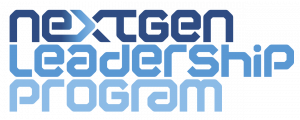Whether it’s a whole company, a project or a team, there’s no question that everyone will be asked to lead at some point in their career. The question, then, is how one can prepare for the responsibility that they will have to shoulder — and what success in that capacity would look like. Fortunately, there are answers to these questions, and the NextGen Leadership Closing Ceremony brought together a group of experienced, successful leaders to share their personal tips on the topic.
Jillian Curtis, Branch Chief for Public Health and Social Services in the HHS Office of Budget, kicked things off by encouraging us to “succeed in management by really, really trying.” In order to do this, she emphasized the necessity of knowing your why — formulating a clear conception not just of your mission, but what is driving you to take it on.
In relation to this, Curtis also stressed the importance of defining your vision — of having a clear idea of the direction in which you want your team or organization to be heading.
If these seem like daunting tasks, it may be because they are. “Leadership requires a level of energy and discipline similar to an athletic pursuit,” Curtis said. This means that practice and training are vital to becoming a good leader, a point that presenter Kevin Coleman drove home during his presentation on communication.
Coleman began with the premise that leadership is influence — one’s ability to motivate and direct those around them. Whether it is with one’s peers or coworkers, being able to form meaningful, natural connections is key to being influential — and as Coleman points out, “connecting is more a skill than a natural talent.” This means that it can be practiced, and Coleman suggests that it is an ability that “you can hone every single day by stretching yourself.”
But leadership is, of course, not just about transferring your ideas and mission to others, but also learning from and collaborating with a team. High-achieving leaders, Coleman says, “listen well to others and seek advice from those under them.”
Presenter Kirstin Austin agrees with this, saying that “You have to work through people — relationships precede results.” To lead effectively, one must see themselves not so much directing the mission as facilitating it — bringing out the best in one’s employees and coworkers, encouraging and assisting, and synthesizing the combined efforts of a team into something greater than the sum of its parts.
Effective leadership, then, can be a lot of responsibility — which is where Austin’s advice, “Don’t judge yourself harder than you’re judging everyone else,” comes in. This does not mean self-assessment is not necessary, however — she also highlights the importance of authenticity in leadership, which means being honest about where your strengths and weaknesses lie.
This also means being transparent about your mission and motivation. In regard to this, Lauren Kunkle and Michael Lawyer from the Department of Housing and Urban Development emphasize the importance of identifying what’s driving you. For civil servants, they suggest, this can be as lofty a goal as saving the world — or at least improving the lives of its citizens. Of course, this also must be balanced with the daily realities of the tasks you have to accomplish and objectives you can achieve, so they suggest learning to be “both great and small,” meaning that you focus on the little things without losing sight of your desire to change the world.
Leadership is a multifaceted concept, and while no single presenter can cover every part of it, the group of speakers that closed out GovLoop’s 2018 NextGen Leaders programgave an impressive overview of everything one could need to grow and develop as a leader. By working to incorporate the advice that they shared, anyone can take their own leadership to the next level.






Leave a Reply
You must be logged in to post a comment.